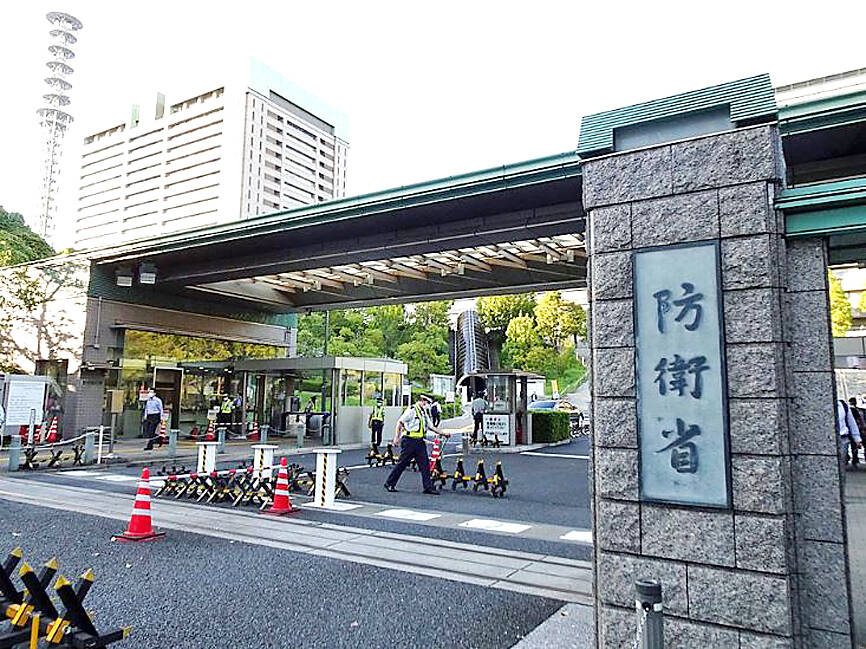China launched 1.4 billion cyberattacks against Taiwan from September 2019 to August 2020, a new report by a Japanese government-funded think tank said.
The attacks largely aimed to spread disinformation in Taiwan, with its authors assessing China’s cognitive warfare against Taiwan to be a “great threat,” the Japanese Ministry of Defense-affiliated Defense Research Institute said on Friday.
The institute has published its China Security Report annually since 2011. This year’s report focused largely on cognitive warfare.

Photo: CNA
The Chinese People’s Liberation Army has been undertaking large-scale reforms since 2015, including the establishment of regional command centers for its land, sea and air forces, and increasing direct participation in military affairs by party members, the report said.
They also included setting up an army intelligence-gathering wing that engages in cyber and cognitive warfare, it said.
The new division disseminates propaganda and disinformation through traditional and social media platforms. It focuses heavily on promoting Taiwan’s unification with China, which it does prior to elections in Taiwan by assisting the campaigns of pro-China candidates, the report said.
The cyberattacks were intended to destroy or steal data from Taiwan’s political, economic and military institutions, and to sow panic among Taiwanese during China’s navy and air force exercises around the nation, it said.
China has also created fake news stories purported to be from Taiwan, in attempts to damage Taiwan’s international reputation, it said.
For example, in April 2020, China disseminated a false news story in which WHO Director-General Tedros Adhanom Ghebreyesus accused Taiwan of racial discrimination, and then tried to make it appear that Taiwan itself had created the story, it said.
China also uses its media outlets to produce propaganda aimed at lowering morale and causing fear among Taiwanese, it said.
For example, following Russia’s invasion of Ukraine, a Chinese state-run tabloid published a report that said the US’ failure to commit troops to Ukraine’s defense should be seen as evidence that it would also not commit troops to defend Taiwan.
The report also provided examples of former Taiwanese politicians and military officials being employed by China for espionage.

A magnitude 7.0 earthquake struck off Yilan at 11:05pm yesterday, the Central Weather Administration (CWA) said. The epicenter was located at sea, about 32.3km east of Yilan County Hall, at a depth of 72.8km, CWA data showed There were no immediate reports of damage. The intensity of the quake, which gauges the actual effect of a seismic event, measured 4 in Yilan County area on Taiwan’s seven-tier intensity scale, the data showed. It measured 4 in other parts of eastern, northern and central Taiwan as well as Tainan, and 3 in Kaohsiung and Pingtung County, and 2 in Lienchiang and Penghu counties and 1

FOREIGN INTERFERENCE: Beijing would likely intensify public opinion warfare in next year’s local elections to prevent Lai from getting re-elected, the ‘Yomiuri Shimbun’ said Internal documents from a Chinese artificial intelligence (AI) company indicated that China has been using the technology to intervene in foreign elections, including propaganda targeting Taiwan’s local elections next year and presidential elections in 2028, a Japanese newspaper reported yesterday. The Institute of National Security of Vanderbilt University obtained nearly 400 pages of documents from GoLaxy, a company with ties to the Chinese government, and found evidence that it had apparently deployed sophisticated, AI-driven propaganda campaigns in Hong Kong and Taiwan to shape public opinion, the Yomiuri Shimbun reported. GoLaxy provides insights, situation analysis and public opinion-shaping technology by conducting network surveillance

‘POLITICAL GAME’: DPP lawmakers said the motion would not meet the legislative threshold needed, and accused the KMT and the TPP of trivializing the Constitution The Legislative Yuan yesterday approved a motion to initiate impeachment proceedings against President William Lai (賴清德), saying he had undermined Taiwan’s constitutional order and democracy. The motion was approved 61-50 by lawmakers from the main opposition Chinese Nationalist Party (KMT) and the smaller Taiwan People’s Party (TPP), who together hold a legislative majority. Under the motion, a roll call vote for impeachment would be held on May 19 next year, after various hearings are held and Lai is given the chance to defend himself. The move came after Lai on Monday last week did not promulgate an amendment passed by the legislature that

Taiwan is gearing up to celebrate the New Year at events across the country, headlined by the annual countdown and Taipei 101 fireworks display at midnight. Many of the events are to be livesteamed online. See below for lineups and links: Taipei Taipei’s New Year’s Party 2026 is to begin at 7pm and run until 1am, with the theme “Sailing to the Future.” South Korean girl group KARA is headlining the concert at Taipei City Hall Plaza, with additional performances by Amber An (安心亞), Nick Chou (周湯豪), hip-hop trio Nine One One (玖壹壹), Bii (畢書盡), girl group Genblue (幻藍小熊) and more. The festivities are to